Behavioral Health + Peer Support
The Behavioral Health Resource Center (BHRC) is a first-of-its-kind approach to shelter and support services.
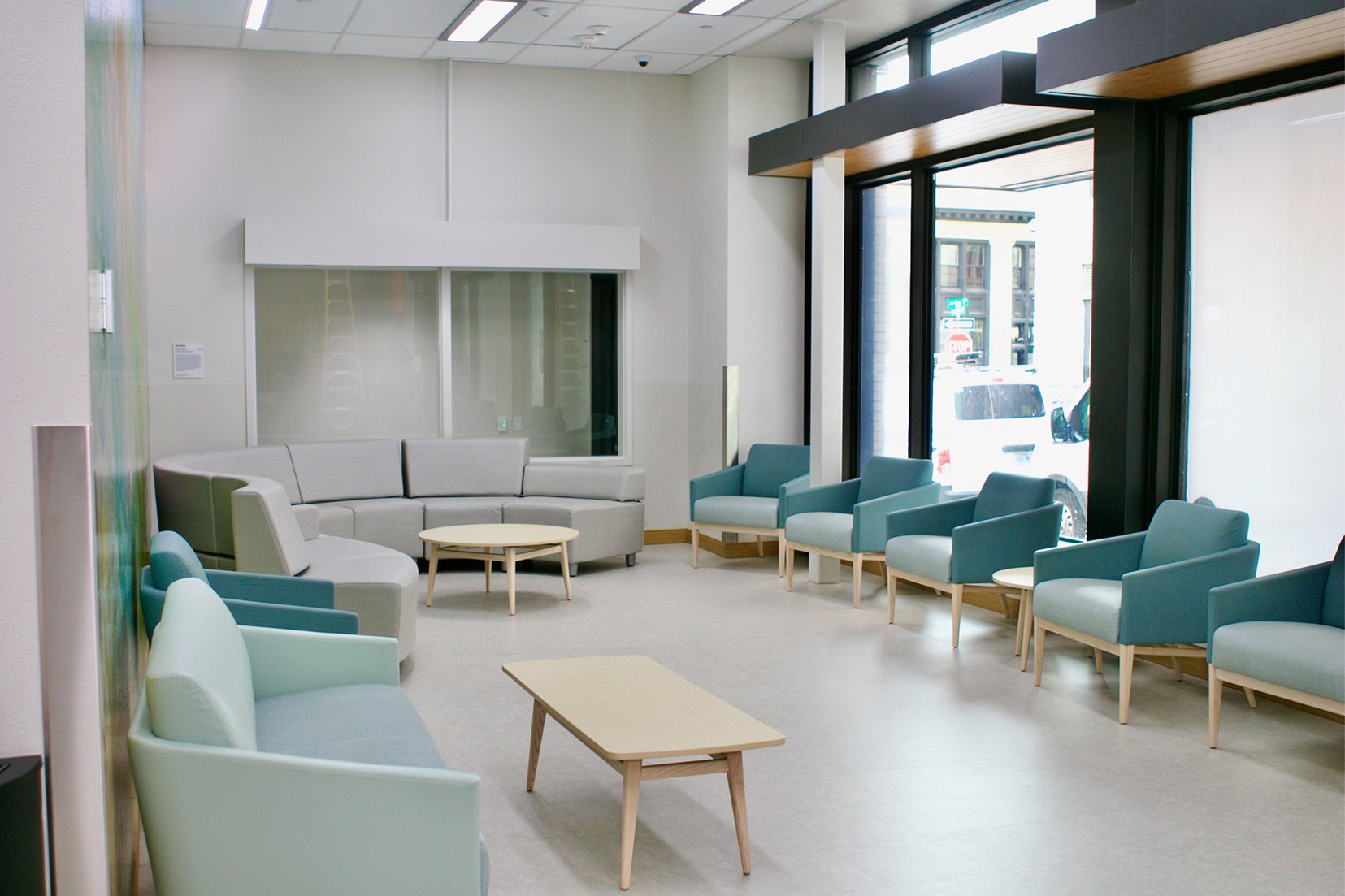
Designed from the ground up using a trauma-informed, peer-led model, the BHRC is built for the people who have been previously traumatized by behavioral health systems. Individuals with lived experience are at the center of the entire project.
The Behavioral Health Resource Center, operated in collaboration with Multnomah County Health, the Joint Office of Homeless Services, and the Mental Health & Addiction Association of Oregon, is a five-floor building in downtown Portland. The first two floors serve as a day center and support services hub, and are operated by MHAAO.
These floors serve as a safe and welcoming space for anyone who is houseless and experiencing addiction or mental health challenges, and offers a place to take a break from living on the street. An individual can warm up or cool off, find support, relax, use the restroom, and take a shower.
The planning process for the BHRC was an intentional effort over a period of four years, and included an advisory council composed of individuals with lived experience. They collaborated on everything from trauma-informed design, policies, safety practices, and an equitable approach to selection and reintegration.
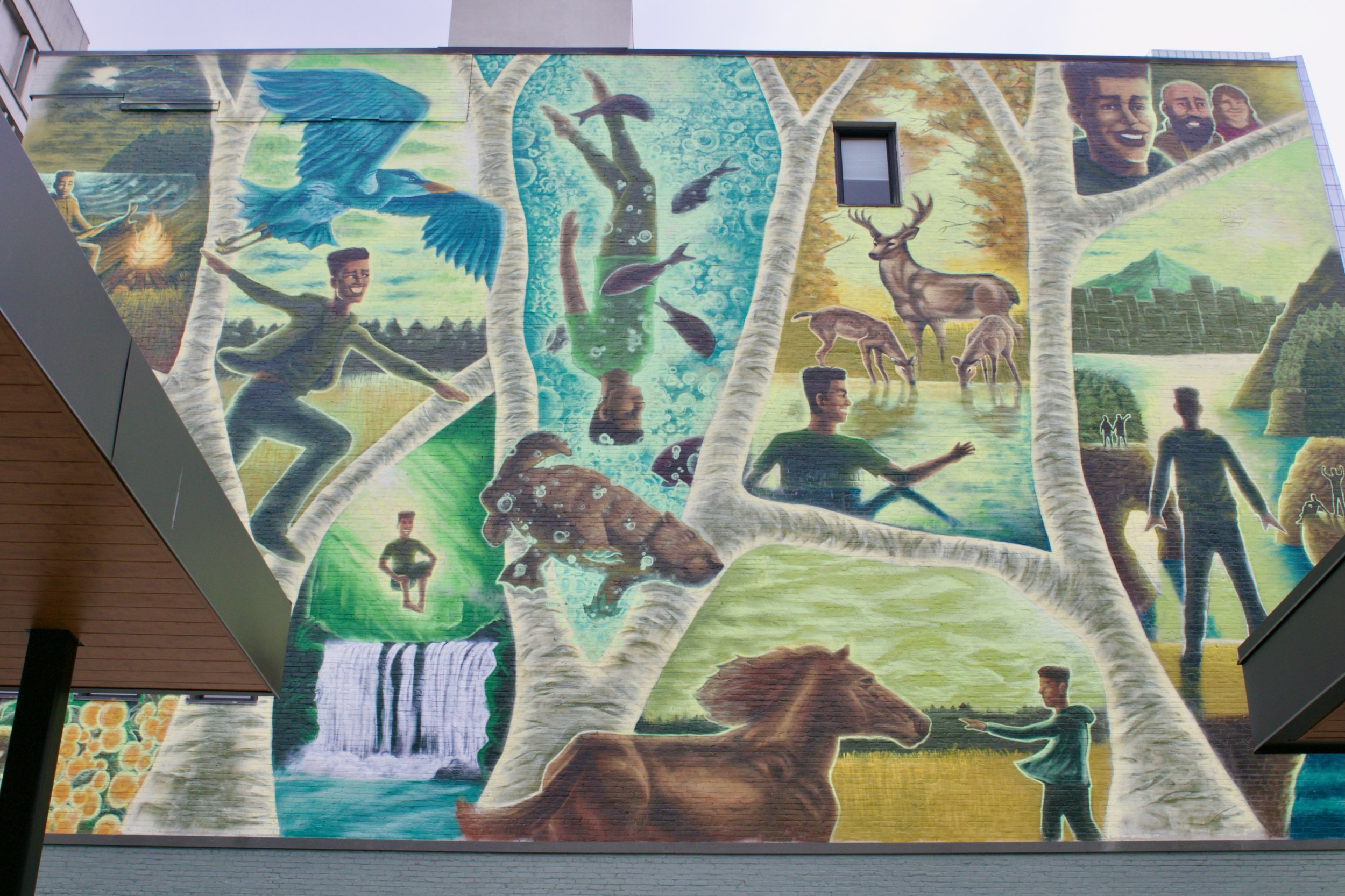
The community has been waiting for this. I am so grateful that Do Good is willing to step up. It won’t always be easy, but the peer-led model is the way to success.
— Barb. Rainish, member of the BHRC Advisory Council
Do Good Multnomah’s role is to operate a total of 52 beds across the 3rd and 4th floors to serve people experiencing homelessness and continue along their path to permanent housing. The 3rd floor holds a congregate shelter featuring 33 beds and 24-hour support services. The 4th floor is a Bridge Housing program with 19 beds in shared rooms for those who’ve had already some success moving towards permanent housing.
All referrals for 3rd and 4th floor come through the day center. The 5th floor serves as meeting space and offices for staff.
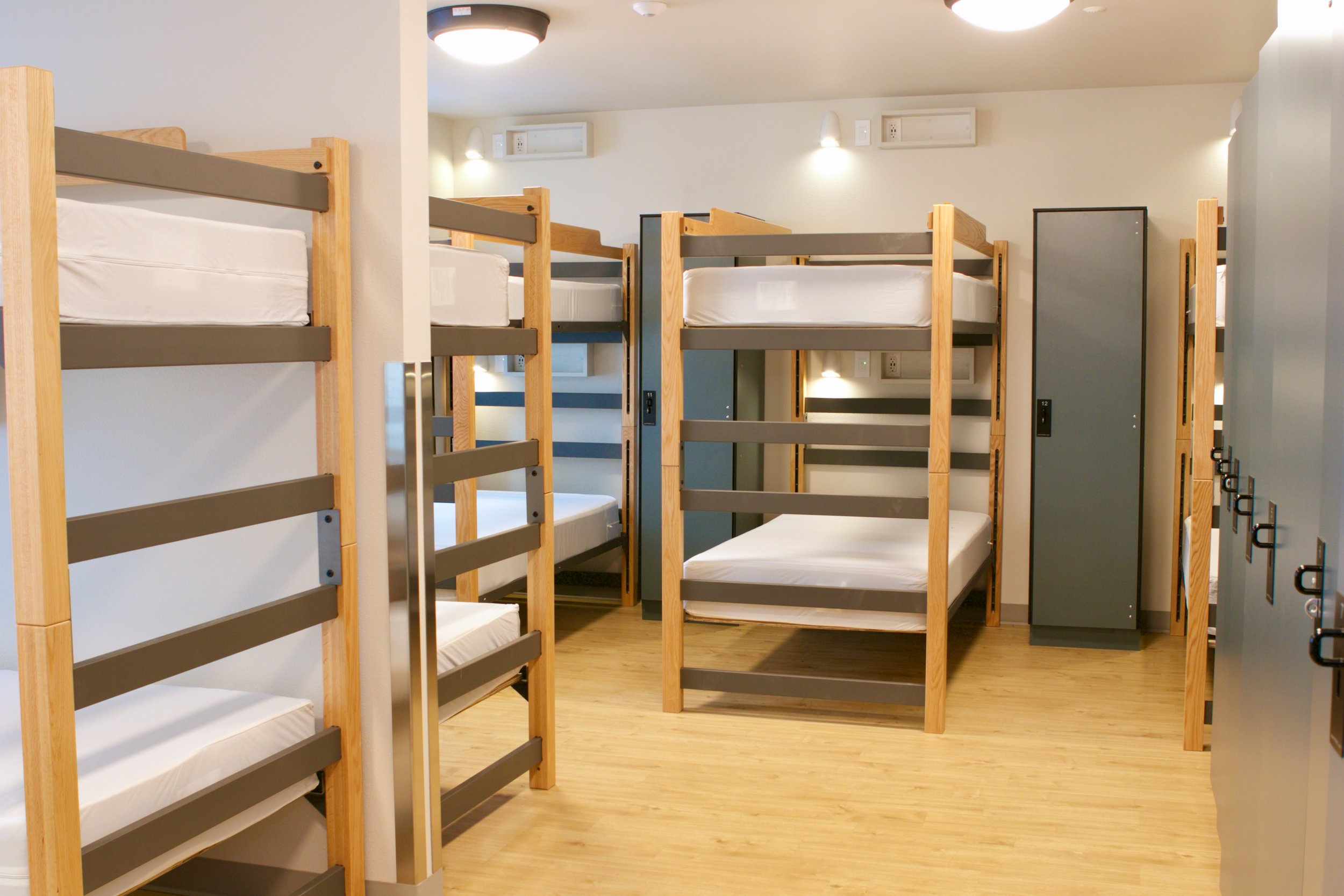
Overnight Shelter
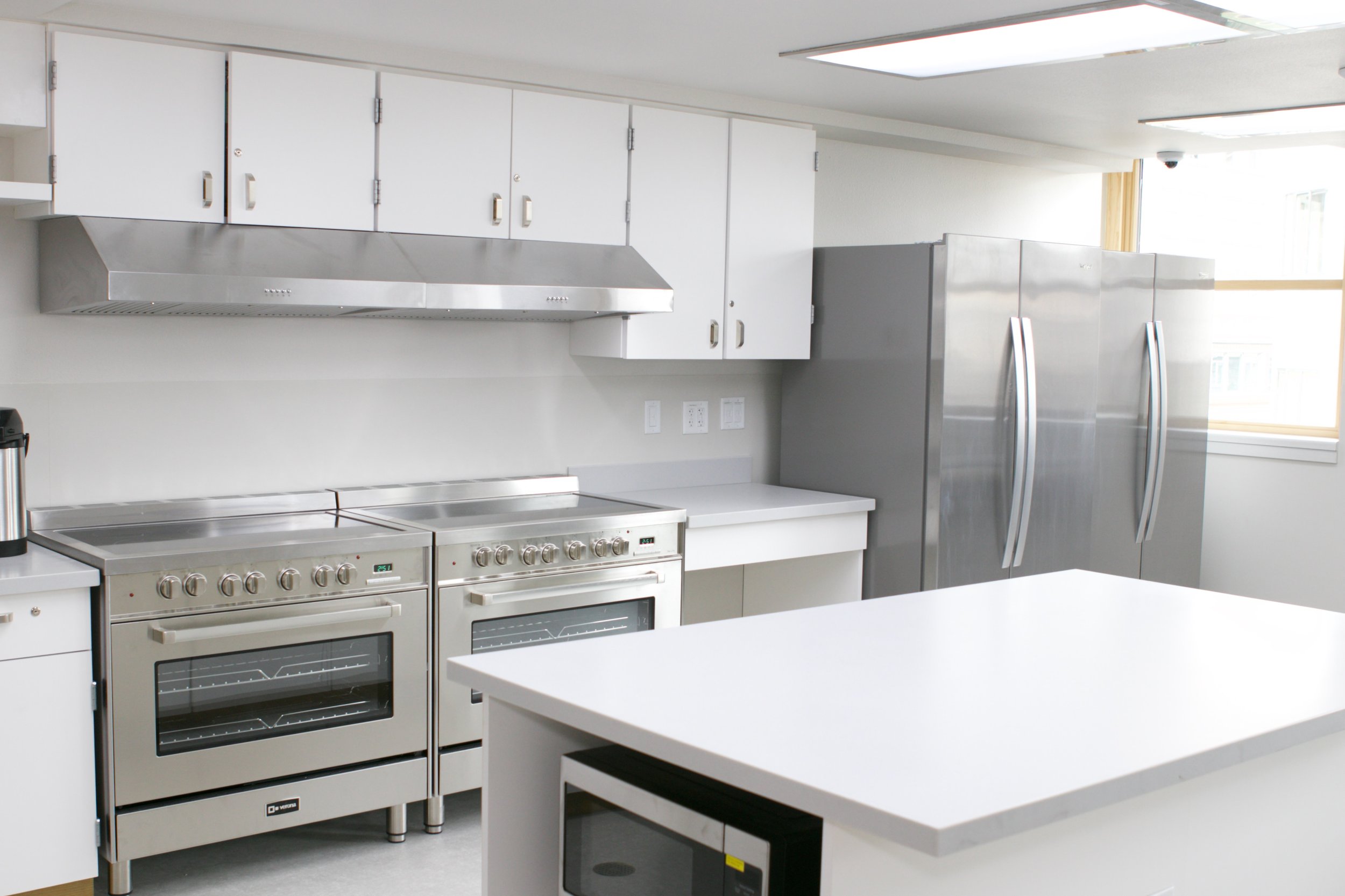
Communal kitchen
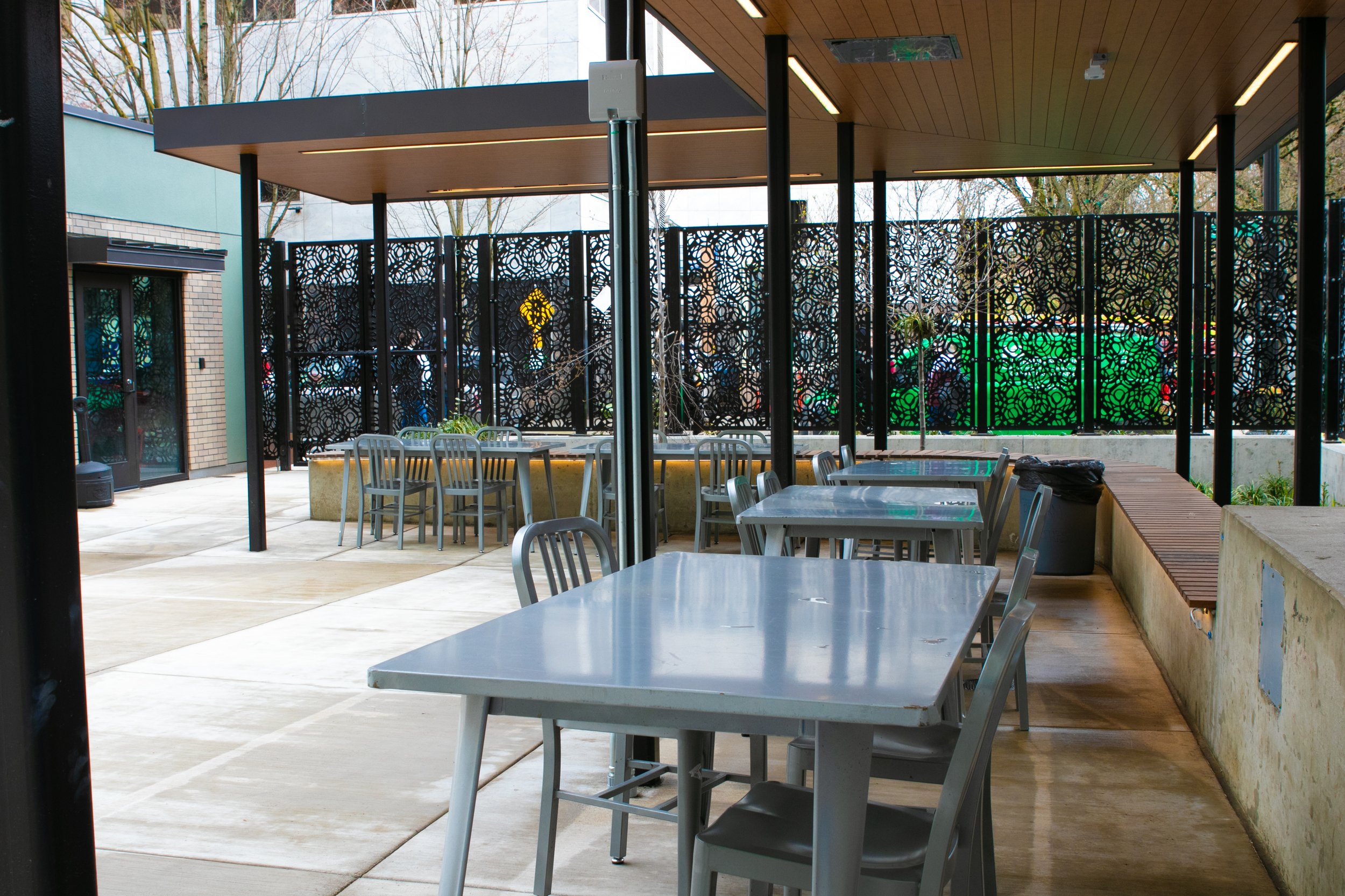
Lived experience lead this whole process. We worked for years with peer stakeholders to build a program that provides safe space for some amazing individuals who simply don’t fit traditional shelter models or recovery systems. A community built this program so that the people can thrive.
— Deandre Kenyanjui, Consumer Engagement Coordinator,
Multnomah County

Take a Video Tour of the Behavioral Health Resource Center
Video credit: Oregon Metro. Used with permission.


